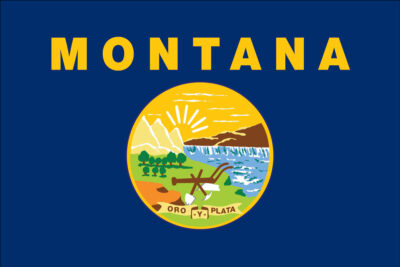Montana “Youth Citizens” Win Landmark Climate Change Trial
Court rules Montana’s state constitutional guarantee of a clean & healthful environment for Montanans prevails over state officials’ fossil fuel-centric policies

A Montana state district court has issued its long-awaited decision in a major climate change case brought by Montana children against state officials. In Held v. State of Montana, a Montana trial court ruled that the state Constitution’s guarantee of a healthy and clean environment prevails over Montana’s longstanding fossil-fuel-based state energy policies. The “youth citizen” plaintiffs in Held successfully argued that implementation of Montana’s “State Energy Policy Act” causes and contributes to climate change, in violation of the Montana Constitution’s longstanding environmental protection provisions.
The court’s 103-page decision in Held v. Montana represents a sweeping victory for lead plaintiff Rikki Held and her 15 co-plaintiffs–all minors when the case was filed in 2020. Montana District Judge Kathy Seeley ruled that Montana’s State Energy Policy Act is unconstitutional in light of several sections of the Montana State Constitution (Article II, sections 2, 3 and 15; and Article IX, section 1) protecting and guaranteeing Montanans a clean and healthy environment. Judge Seeley did so after presiding over a two-week, non-jury trial in June 2023–the first such climate change trial in U.S. legal history.
The Held litigation is the latest chapter in a long-running legal effort by an Oregon-based nonprofit organization, Our Children’s Trust. It represents young people around the nation whose future–and present–are severely compromised by the country’s continued dependence on a carbon-based economy. That economy’s greenhouse gas emissions are dramatically changing our environment. The first legal challenge mounted by Our Children’s Trust was Juliana v. United States. In that case, Our Children’s Trust represented a group of Oregon youths who sued the federal government, seeking redress for what the children claimed was the government’s failure to protect them from the environmental, health and economic damage wreaked by climate change. Critically, the Juliana case relied on federal law. The Juliana plaintiffs found a receptive audience in a federal district judge in Oregon, who ruled their claims plausible in a preliminary decision and set the case for trial. But the Juliana case was derailed–at least temporarily–through the intervention of the U.S. Court of Appeals for the Ninth Circuit. A divided 2-to-1 panel of that court–pressured by a series of “shadow docket” orders from the U.S. Supreme Court–decided in a 2020 ruling that the young Juliana plaintiffs lacked legal standing to bring their lawsuit under federal law.
Undeterred, Our Children’s Trust turned to state courts in Montana and elsewhere, where legal standing rules are less stringent than in the federal courts. The August 14th Held v. Montana decision reached the merits of the youth plaintiffs’ case, and delivered them a resounding legal victory.
In a series of pretrial motions, the Montana government defendants had pressed a number of procedural arguments in an effort to get the Held lawsuit dismissed. Montana’s Governor and Legislature attempted to head off a trial in the case by amending state statutes in an effort to reduce the state’s constitutional guarantee of a clean environment to an empty and unenforceable promise. But Judge Seeley rejected the state defendants’ legal stratagems, allowing the case to proceed to trial.
At trial, it proved to be no contest. The Held plaintiffs presented numerous state, national and international climate change experts, who testified regarding the effects of greenhouse gas emissions on Montana’s environment, people and economy. The children who brought the lawsuit testified persuasively regarding the physical, psychological and economic damage that they have suffered due to those emissions and their profound impacts on Montana’s environment. The Montana government defendants, in contrast, were unable to rebut the plaintiffs’ factual testimony in any meaningful way.
Turning to the legal arguments, Judge Seeley ruled that the Held plaintiffs had legal standing to bring their case under Montana state law. She then declared that the state’s dogged policy of relying on fossil fuels violated the Montana Constitution’s guarantee of a clean and healthful environment. And she concluded that the new statutes passed by the Montana Legislature and signed into law by the Governor were unconstitutional on their face, citing a prior Montana Supreme Court decision.
Despite the Held plaintiffs’ dramatic legal victory, the case is far from over. The state defendants will undoubtedly appeal Judge Seeley’s decision to the Montana Supreme Court, whose current makeup is decidedly more conservative than it’s been in the past. While the trial court’s detailed factual findings are binding on the Supreme Court, the Montana justices may find the state defendants’ procedural arguments more persuasive than did Judge Seeley.
Critically, the Held v. State of Montana decision is merely the leading edge of a nationwide movement led by Our Children’s Trust to rely on state constitutional provisions to force a legal reckoning and a transition from fossil fuels to far more environmentally-benign renewable energy resources. Several other states, including Pennsylvania, New York, Massachusetts and Hawaii, have environmental provisions in their constitutions comparable to Montana’s. Our Children’s Trust is pursuing lawsuits similar to the Held case in these other jurisdictions, seeking to enforce those states’ constitutional guarantees in the context of climate change concerns.
Meanwhile, in Oregon the Juliana plaintiffs have recalibrated their own federal lawsuit, which may finally go to trial in the U.S. District Court there. And the sweeping legal victory that the Held plaintiffs have achieved in Montana may well spur other states–including California–that do not currently have constitutional provisions guaranteeing a clean and healthy environment for their residents to amend their own constitutions to add them.
My Legal Planet colleagues and I will undoubtedly have much more to say about the Held v. State of Montana decision and its implications for the future. Stay tuned.






Reader Comments